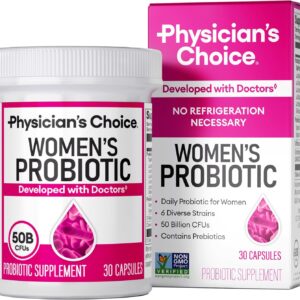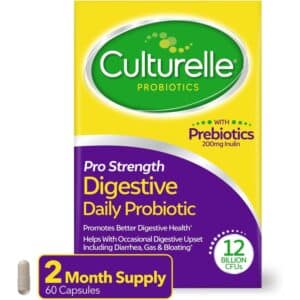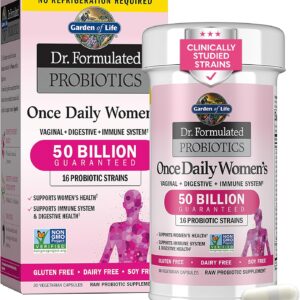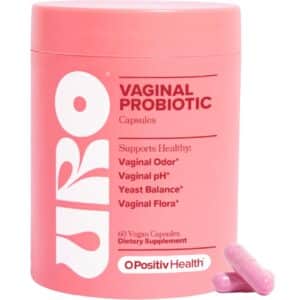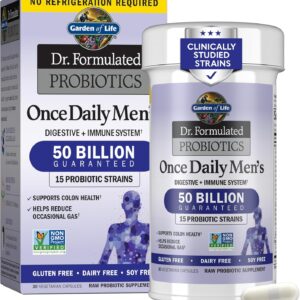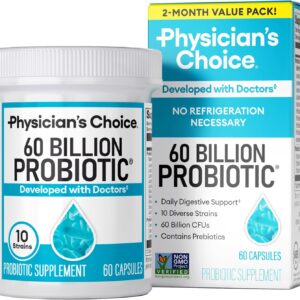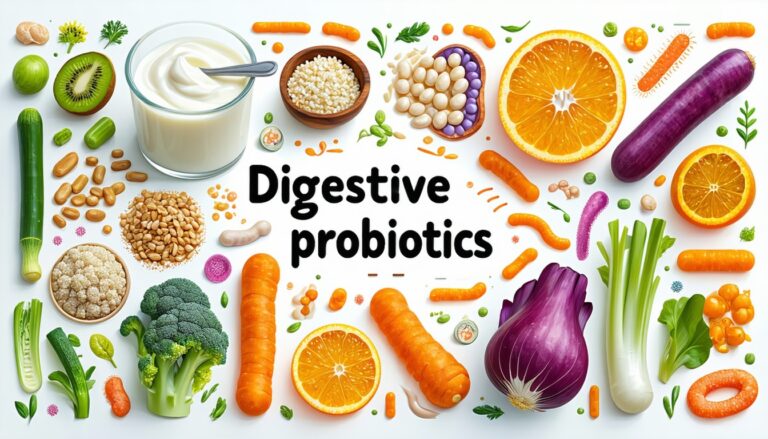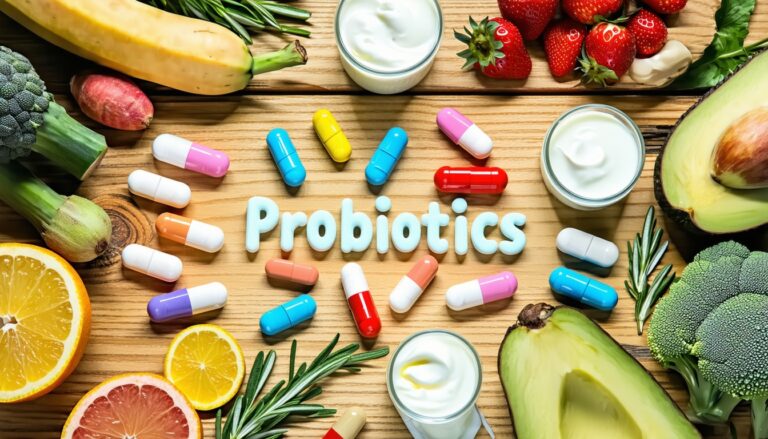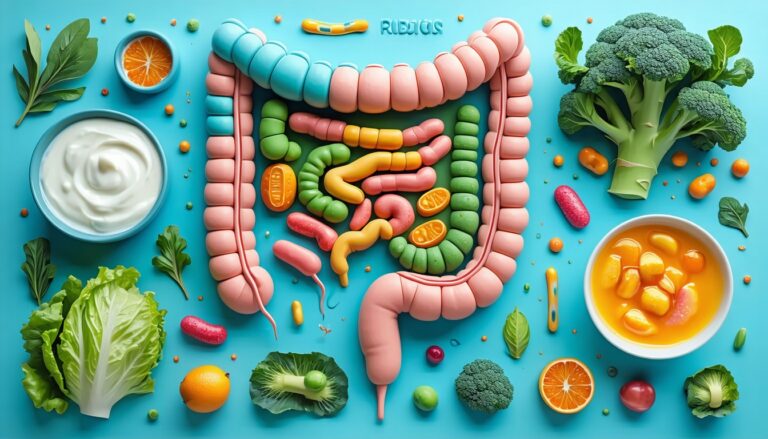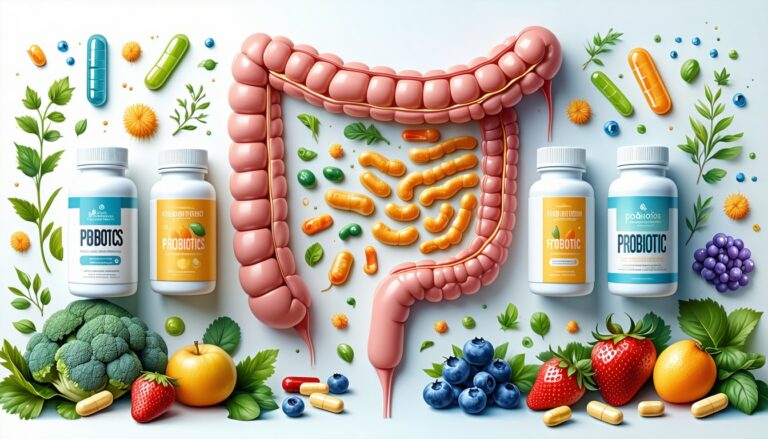Probiotics and Digestive Health go hand-in-hand when it comes to building a balanced gut and boosting overall wellness. These living microorganisms—found in fermented foods and supplements—play a vital role in supporting digestion, enhancing nutrient absorption, and defending against harmful bacteria. From improving immune function to alleviating issues like bloating, diarrhea, and even inflammation, probiotics are emerging as everyday heroes for gut health. This article unpacks what makes them so effective and how you can integrate them into your daily routine.
Understanding Probiotics
What are Probiotics?
Probiotics, you say? They’re like tiny living superheroes, made up mostly of bacteria and yeasts, that pack a punch of health benefits when you chow down on them. They give a boost to your entourage of good microbes and help boot out the unwelcome bugs, powering up your immune system to tackle infections (Cleveland Clinic). Find these little guys in places like yogurt, supplements, and all sorts of yummy fermented food.
What’s the big deal? Probiotics are champs at preventing and sorting out trouble in your gut, technically called dysbiosis. By bulking up the helpful critters in your tummy, they keep your gut in tip-top shape, leading to, you guessed it—feeling awesome all around (Cleveland Clinic).
Role of Probiotics in Gut Health
When it comes to keeping your gut happy, probiotics are where it’s at. A good gut microbiome is like having a solid team of players, making sure your digestive system runs smooth as silk. Here’s a glimpse into the magic:
- Digestion: They’re pros at breaking down chow, meaning your body gets more bang for its buck nutrient-wise.
- Protection: These little warriors fend off harmful germs and keep trouble like IBS and IBD at bay (Cleveland Clinic).
- Nutrient absorption: They give nutrient absorption a boost, so your body’s running on premium fuel.
Your gut’s not just about digestion; it’s the command center for metabolism and also plays a big part in how your immune system reacts. A whopping 99% of the bacteria in your gut are anaerobes, working silently for your well-being (NIH).
| Gut Health Wonder | Probiotic Power |
|---|---|
| Digestion | Supercharge nutrient breakdown |
| Protection | Fend off nasty germs |
| Disease Stopper | Keep gut diseases at bay |
| Immune Boost | Pump up the immune squad |
Adding probiotics to your meals is an easy way to support your digestive groove. Want to dive deeper? Check out our info-packed pages on probiotics for digestive health and digestive probiotics.

Types of Beneficial Microorganisms
Getting a grip on the types of good-guy microorganisms is crucial to seeing how probiotics boost your health game. Let’s chat about three prime groups: Bifidobacteria, Lactobacillus, and Saccharomyces.
Bifidobacteria
Bifidobacteria are seasoned veterans in the probiotic circuit, loaded with all sorts of perks. They hang out mainly in your gut and do all the heavy lifting to keep things running smoothly. Here’s how they hook you up:
- Tummy Whiz-Kids: These guys break down fiber and tricky carbs, whipping up short-chain fatty acids that feed your gut’s inner workings.
- Immunity Kickstarters: They jack up your immune system, making your body a fortress against sneaky pathogens.
- Gut Gatekeepers: Bifidobacteria beef up the intestinal walls, shutting down issues like leaky gut from happening.
You’ll bump into Bifidobacteria in lots of gut-friendly probiotic supplements and fermented munchies like yogurt.
Lactobacillus
Lactobacillus is another big name in probiotics and scores high for its many talents. Living in your digestive turf, they offer:
- Gut Harmony Keepers: They ensure a friendly neighborhood in your tummy, outmuscling any nasty bacteria around.
- Vitamin Factory Workers: These team players churn out vitamins, notably some B types, which are key for keeping your body’s gears turning.
- Sidekick in Antibiotic Times: Lactobacillus can prevent stomach issues during antibiotic use, making them your best friend when tackling prescriptions.
You’ll see these probiotics often in fermented goodies, perfect for boosting digestive health with probiotics.
Saccharomyces
A bit different from bacteria, Saccharomyces is a yeast and brings its own special flair. Saccharomyces boulardii is the spotlight strain, and here’s what it’s good for:
- Stomach Problem Solvers: Known to tackle diarrhea, whether from infections or antibiotics.
- Gut Habitat Restorers: They help get your gut’s natural balance back, especially after meds mess things up.
- Bodyguard for Your Gut: Saccharomyces also strengthens your gut lining, keeping it in top shape.
You’ll find Saccharomyces in many probiotics for digestion, making them a cool choice to aid your gut post-antibiotics.
Working these beneficial microorganisms into your meals spruces up your health and backs up gut health with probiotics. Each type pitches in a unique way to up your digestive game and boost your overall well-being.
Probiotics and Gut Microbiome
Figuring out how probiotics get their magic done can lead you to a happy belly and a thriving life. In this part, we’re all about the nitty-gritty of what lives in your gut and how probiotics can make everything work smoother.
Gut Microbiota Composition
Your gut? It’s like a mini-ecosystem bustling with tiny creatures – tons of good bacteria, some bad ones, viruses, fungi, and a few others. A shake-up of these little guys can mess around with how your body functions as a whole. Everyday stuff like what you eat, those antibiotics you took when you were sick, and even your stress levels shake things up in your gut’s community.
To keep it simple, check out this table of who’s who in your gut:
| Microorganism Type | The Job They Do |
|---|---|
| Good Bacteria | Help with digesting food and soaking up nutrients, keep the bad guys in check |
| Trouble-Maker Bacteria | Can make you sick and inflame your insides |
| Viruses and Fungi | Their roles are a bit foggy, but some can tweak gut health |
It’s all about keeping your friends plentiful and the troublemakers on lockdown for that feel-good digestive mojo.
Impact of Probiotics on Gut Health
You know those friendly probiotics? They’re like the champions of the gut world, helping keep your insides balanced. They roll in with more good bacteria, showing the baddies the door by simply crowding them out. It’s like crowd control, but for your tummy.
Probiotics are superstars when it comes to defending your gut’s fortress. They do their thing by:
- Getting the mucus flowing
- Strengthening those gut walls
- Making sure nothing leaks where it shouldn’t
- Sparking new cells to keep things fresh and tightly knit
These actions ensure everything’s functioning right, squashing inflammation, and providing relief for issues like leaky gut syndrome.
Adding probiotics to your meals could save you from a bunch of tummy troubles, such as:
- Diarrhea
- IBS (Irritable Bowel Syndrome)
- IBD (Inflammatory Bowel Disease)
For more insights on how probiotics can be a game-changer for your gut, check out our articles on probiotics for gut health and digestive probiotics. Getting more probiotics into your life can shift your digestive gears into happy mode, boosting your wellness all around.
Health Benefits of Probiotics
Think probiotics are just good for your tummy? Think again, they’re like little health superheroes ready to improve your body in more ways than one. Let’s dive into some of the awesome perks of working these guys into your meals.
Immune System Boost
Probiotics are a bit like a secret weapon for your immune system. They work behind the scenes to keep your gut bacteria in check, creating a foundation for a rock-solid immune response. When your gut is happy, your body is more prepared to handle nasty bugs and illnesses (Cleveland Clinic).
Studies suggest probiotics might cut down your sick days, whether it’s battling colds or tummy troubles. Take a look at how they stack up in the table below:
| Benefit | Impact |
|---|---|
| Supercharged defenses | Fend off infections better |
| Shorter colds | Bounce back quicker from illness |
Inflammation Reduction
Taking on inflammation is another trick up the probiotic’s sleeve. We all know chronic inflammation can wreak havoc, from heart problems to arthritis. By balancing your gut, these tiny helpers might just give those inflammation levels a kick (Cleveland Clinic).
Check out how they pave the way for a healthier you:
| Trouble Spot | Probiotic Help |
|---|---|
| Gut grumbles | Ease inflammation |
| Inflamed everywhere | Bring down inflammation markers |
Digestive Regularity
When your gut’s out of whack, it can mess with your entire life. Probiotics are famed for smoothing out digestion hurdles. So, whether you’re backed up, bloated, or running to the restroom, probiotics might just be your go-to remedy (Cleveland Clinic).
Here’s the lowdown on digestive perks:
| Gut Worry | Probiotic Magic |
|---|---|
| Can’t go? | Gets things moving |
| Can’t stop going? | Balances gut vibes |
| Bloated like a balloon? | Takes the edge off the bloat |
Making probiotics a regular part of your life is a no-brainer if you ask us. They’re a straightforward road to feeling better all-around. Curious how they can keep your digestion smooth sailing? Check out probiotics for digestive health and digestive probiotics.
Safety and Considerations
Possible Bumps Along the Road
Okay, here’s the deal. While probiotics usually play nice, sometimes they might throw a tiny tantrum—at least in the beginning. Here are a few things that might pop up:
| What Could Happen | What’s Going On? |
|---|---|
| Stomach in a Twist | That uncomfortable stomach feeling. |
| Gas Party | Feeling puffed up or making more noise than usual. |
| Quick Trip to the Bathroom | Yup, things might get a bit runny. |
| Balloon Belly | Feeling a bit too full or puffy in the belly. |
Usually, these quirks settle down as your system gets used to the idea of probiotics. Keep in mind, though, that the food police, aka the U.S. Food and Drug Administration (FDA), don’t keep tabs on probiotics like they do on other things. And there have been some rare but serious hiccups, especially in tiny humans, like premature infants (Mayo Clinic). If any of these annoyances stick around, it might be wise to pause and chat with your doc.
Who Needs to Be Extra Careful?
Some folks might need to hit the brakes before taking the probiotic plunge. Here’s who should consider checking in with a healthcare pro first:
- Weak Immune Team: If your immune system’s not in top shape—maybe you’re on chemo or dealing with an autoimmune thing—probiotics could invite uninvited guests, aka infections (WebMD).
- Post-Surgery or Really Sick: If you’re bouncing back from surgery or pretty darn unwell, probiotics might not be your best friend right now (WebMD).
- Kids and Moms-in-Waiting: Before giving these little friendly bugs to your kiddo or while you’re expecting or nursing, a quick call or visit to your healthcare provider is a must (WebMD).
Bottom line: Probiotics are mostly great for the gut gang, but knowing the possible hiccups and being cautious can make you a smart user. It’s never a bad idea to talk with a pro before adding new stuff, especially if health conditions are along for the ride. To dig into the broader picture of digestive health probiotics and find out the best probiotic picks for gut vibes, there are more goodies to explore.
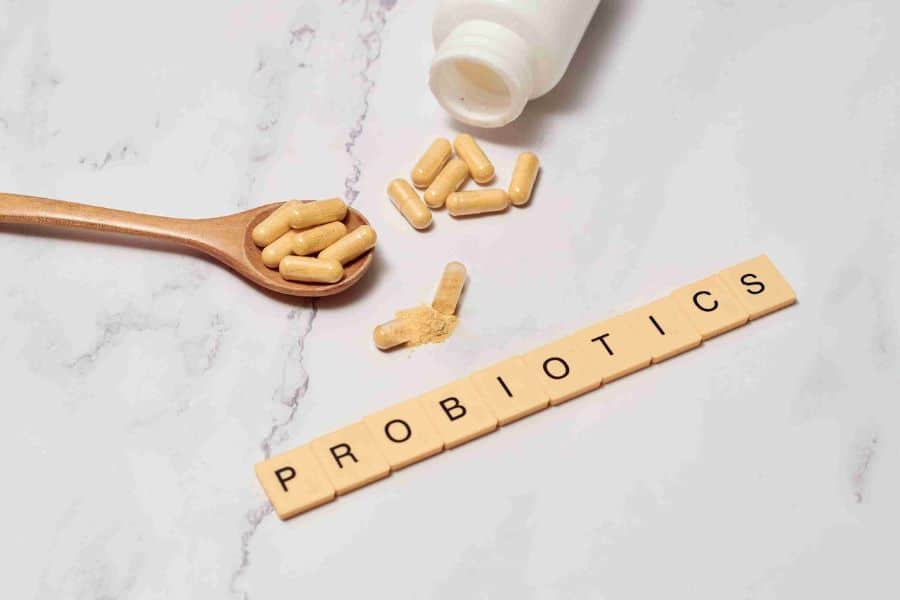
Probiotics in Action
Adding probiotics to your daily lineup can do wonders for your tummy health. These little critters are the unsung heroes of your gut, keeping everything running smoothly by balancing the good bugs in your body. Here’s how to sneak probiotics into your meals and pick the best supplements for you.
Sneaking Probiotics into Meals
Probiotics are hidden gems in lots of grub. Eating these foods is a cinch and brings the perks of probiotics to your plate:
| Probiotic Food | Probiotic Content (approx.) |
|---|---|
| Yogurt | 1-100 billion CFU per serving |
| Kefir | 1-30 billion CFU per serving |
| Sauerkraut | 1-10 billion CFU per serving |
| Kimchi | 1-10 billion CFU per serving |
| Miso | 1-2 billion CFU per tablespoon |
| Tempeh | 1-5 billion CFU per serving |
| Fermented Pickles | 1-10 billion CFU per serving |
*CFU refers to colony-forming units, showing you how many live bacteria are in a scoop.
Mixing these into your diet helps fend off dysbiosis – that’s a fancy way of saying your gut bacteria are out of whack. Kick off your morning with yogurt or kefir, toss some sauerkraut into your salad, or throw kimchi on the side of your dinner plate. For extra ideas, explore more about digestive probiotics.
Picking the Best Probiotic Supplements
Not all probiotics come from food. If pills are more your jam, picking the right ones matters. Various strains help in different ways, and they don’t all work the same. Here are some tips to snag the best supplements:
- Strain Game: Zero in on strains that vibe with your health. Lactobacillus acidophilus is a rock star in fixing gut balance (Cleveland Clinic).
- Count Your CFUs: Look for at least 1 billion CFUs per dose, which is the sweet spot for tummy love.
- Mix It Up: Want to cover your bases? Go for a probiotic with multiple strains to boost gut goodness.
- Get Expert Advice: Chat with a healthcare pro to nail down which probiotics match your needs (Cleveland Clinic).
With the right picks, you can score probiotics that fit your groove and pump up your health. Whether you’re going for food or pills, probiotics power up your gut happiness. Want to dive deeper into how these little wonders work? Check out our articles on probiotics for gut health and probiotics and digestion.
Final Thoughts
The journey to optimal digestive health is deeply rooted in the balance of your gut microbiome, and probiotics are a key player in maintaining that harmony. Whether you’re navigating chronic digestive issues or simply want to bolster your immune system, incorporating probiotics—through diet or supplements—can be a game-changer. Remember, not all probiotics are created equal. Knowing which strains benefit your specific health needs and taking proper precautions, especially if you have existing health concerns, ensures you make informed choices. With a little guidance and consistency, probiotics can become a powerful tool in your health toolkit.
Frequently Asked Questions (FAQ)
What are probiotics, and how do they work?
Probiotics are live bacteria and yeasts that are beneficial to your digestive system. They work by restoring the natural balance of gut bacteria, enhancing digestion, and protecting against harmful microbes.
Which foods are high in probiotics?
Fermented foods like yogurt, kefir, sauerkraut, kimchi, miso, tempeh, and pickles are rich in probiotics. Each offers a unique profile of beneficial microorganisms to support gut health.
Can probiotics help with digestive disorders like IBS or IBD?
Yes, certain strains of probiotics have been shown to alleviate symptoms of Irritable Bowel Syndrome (IBS) and Inflammatory Bowel Disease (IBD) by reducing inflammation and improving gut barrier function.
Are there side effects to taking probiotics?
Some people may experience mild symptoms like gas, bloating, or upset stomach when starting probiotics. These effects usually subside as the body adjusts, but individuals with compromised immune systems should consult a doctor first.
How do I choose the right probiotic supplement?
Look for supplements that list specific strains (e.g., Lactobacillus acidophilus), have at least 1 billion CFUs per dose, and ideally contain multiple strains. Consulting a healthcare professional can help tailor the choice to your needs.
Are probiotics safe for children and pregnant women?
Probiotics can be beneficial, but it’s essential for children and pregnant or nursing women to consult a healthcare provider before starting any probiotic regimen.

